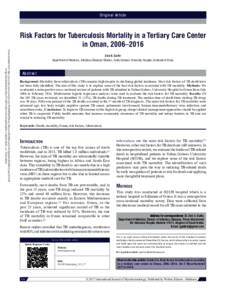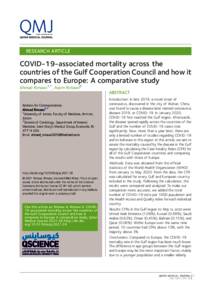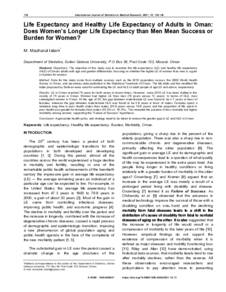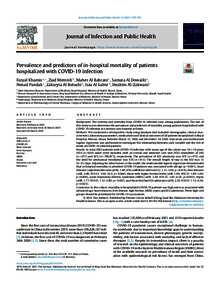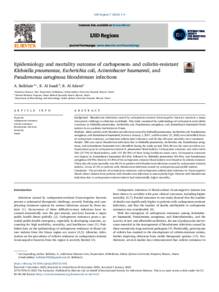Document
Investigating cause-specific mortality in GCC countries through multivariate statistical methods.
Identifier
DOI: 10.3923/ajsr.2018.544.552
Source
Asian Journal of Scientific Research. v. 11, 4, p. 544-552
Contributors
Almulhim, Tarifa., Author
Country
Pakistan.
Publisher
Asian Network for Scientific Information.
Gregorian
2018-01-01
Language
English
English abstract
Background and Objective: The Gulf Cooperation Council (GCC) is a group member of states, namely, Bahrain, Kuwait, Oman, Qatar, Saudi Arabia and the United Arab Emirates (UAE), which are currently high-income countries according to the World Bank. Several studies have been performed on cause-specific mortality in high-income and developed countries all over the world but no studies exist on cause-specific mortality in the GCC region. The aim of this study is to carry out a multivariate analysis and provide empirical (explanative) evidence regarding the most critical, frequent causes of mortality in GCC countries. Materials and Methods: The study was based on cause-specific mortality data for GCC countries from the World Health Organization (WHO). By applying a multiple correspondence analysis and heat maps, we investigate associations between a set of 19 types of non-communicable diseases for six GCC countries. Results: Mortality caused by non-communicable diseases show different prevalence and intensities on each country, however, two factors are identified as primary risk for all GCC countries: (i) Harmful habits and lifestyles (smoking, lack of physical activity, etc) and (ii) Extreme weather conditions that characterize the region. Conclusion: There are common risk factors causing mortality in GCC region. Policy makers in the healthcare, life insurance and actuarial sectors should find this work useful for improving decision making processes, since GCC countries have joint agreements in these areas.
ISSN
1992-1454
Category
Journal articles

